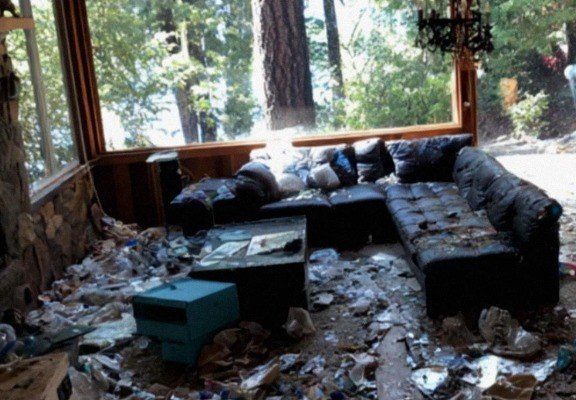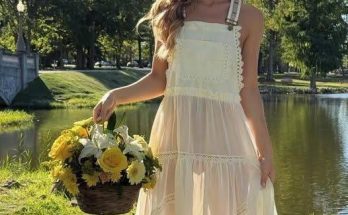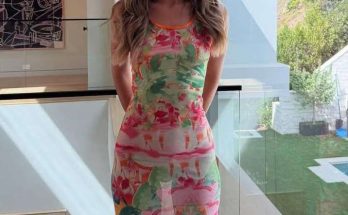When my mother passed, she left me one thing that meant more than anything: her little house by the lake. She’d bought it long before she knew my dad, and it held her happiest hours—easels by the window, jars of brushes, the smell of pine and coffee in the morning. It wasn’t just property to me. It was the place where her spirit felt most alive.
I grew up spending school breaks there. She’d toss a picnic blanket in the car, and we’d make the hour drive out of town. She painted while I skipped stones or built forts out of driftwood. If it rained, we read in the bay window, cocoa steaming, listening to the roof sing. My sweetest memory is turning fifteen and staying a full week—blueberry pancakes every dawn on the old stove, the sun climbing over the water as we ate on the porch.
“This place saved me,” she told me once by the fire pit, marshmallows turning gold. “When life felt heavy, I drove here to remember who I was.”
She died when I was sixteen. By the time I turned twenty-one, the deed came to me, and I told everyone—including my father—exactly what it meant: the lake house wasn’t for guests, renters, or casual use. I visited a few times each year to clean and keep it just as she left it. It was my way of holding on.
Dad remarried within a year. Her name was Carla: gleaming veneers, sculpted cheekbones, and a personality that felt newly unwrapped from a boutique. She could never resist a dig at my mother. She replaced my mom’s quilts and paintings at our main house with cold, glossy furniture and smirked at dinner, “She was so… whimsical,” like my mom’s joy was a punchline. I will never forget being seventeen, hearing Carla and her friends laugh about my mom’s herbs, crystals, and garden like she was a joke.
When the lake house officially became mine, Dad nodded and respected the boundary. Carla gave me a sugary smile and said, “Of course, honey. Your mother’s little fairy cottage should stay just so.” The way she said it made my skin prickle.
Five years after my mother’s passing, I kept my tradition: take the day off work, bring flowers, and sit quietly at the lake. But when I pulled into the drive that morning, my stomach dropped. Four cars were already there. Music thumped. Laughter spilled from the deck.
Through the window I saw Carla uncorking wine, her friends sprawled out in swimsuits like it was a resort. One woman had her feet propped on my mom’s hand-stitched pillow—the one that said, “Calm waters, steadfast heart.” Something in me went cold.
I didn’t barge in. I noticed the doorframe wasn’t damaged. No forced entry. That meant a key. Later I learned she’d taken it from my desk while I was away on business. I also found her texts: “Bring the good bottles—we’re christening the hippie hut 😏” and “She does her grieving after the weekend; she’ll never know.”
When I confronted her afterward, she waved me off. “You’re being dramatic. It’s a shame to let a place like that sit idle.” When I reminded her what day it was, she shrugged. “Your mom wouldn’t want you stuck in the past. Brooding isn’t healthy.”
I didn’t yell. I called my attorney.
I’d installed cameras at the lake the year before because of a rash of local break-ins. The footage showed everything: Carla unlocking the door, her friends making snide remarks about my mom’s art, one of them knocking over and shattering a stained-glass panel my mom had soldered by hand. Paired with the messages she sent, we had more than enough.
Things moved quickly from there. Carla was charged with trespassing and theft, and I filed a civil claim for the damages. A judge granted a restraining order keeping her 500 feet away from me and the lake property. Even her own lawyer ultimately stepped away after realizing my mother had once helped his wife through postpartum depression. The public humiliation didn’t help either.
Her marriage to my father didn’t survive the fallout. Two months later she packed up and left. For the first time in a long while, I felt like the balance had been restored.
The house by the water is safe again. New locks, upgraded security, everything set exactly the way my mom loved it—brushes in the jar by the window, quilts folded over the cedar chest, her mug on the shelf. On quiet mornings I sit on the porch with coffee and say, “I’ve got you, Mom. I’ll always keep this place safe.”
Some places are more than wood and windows. They are the heartbeat of the people we’ve lost. Guarding them is how we keep that heartbeat going.



